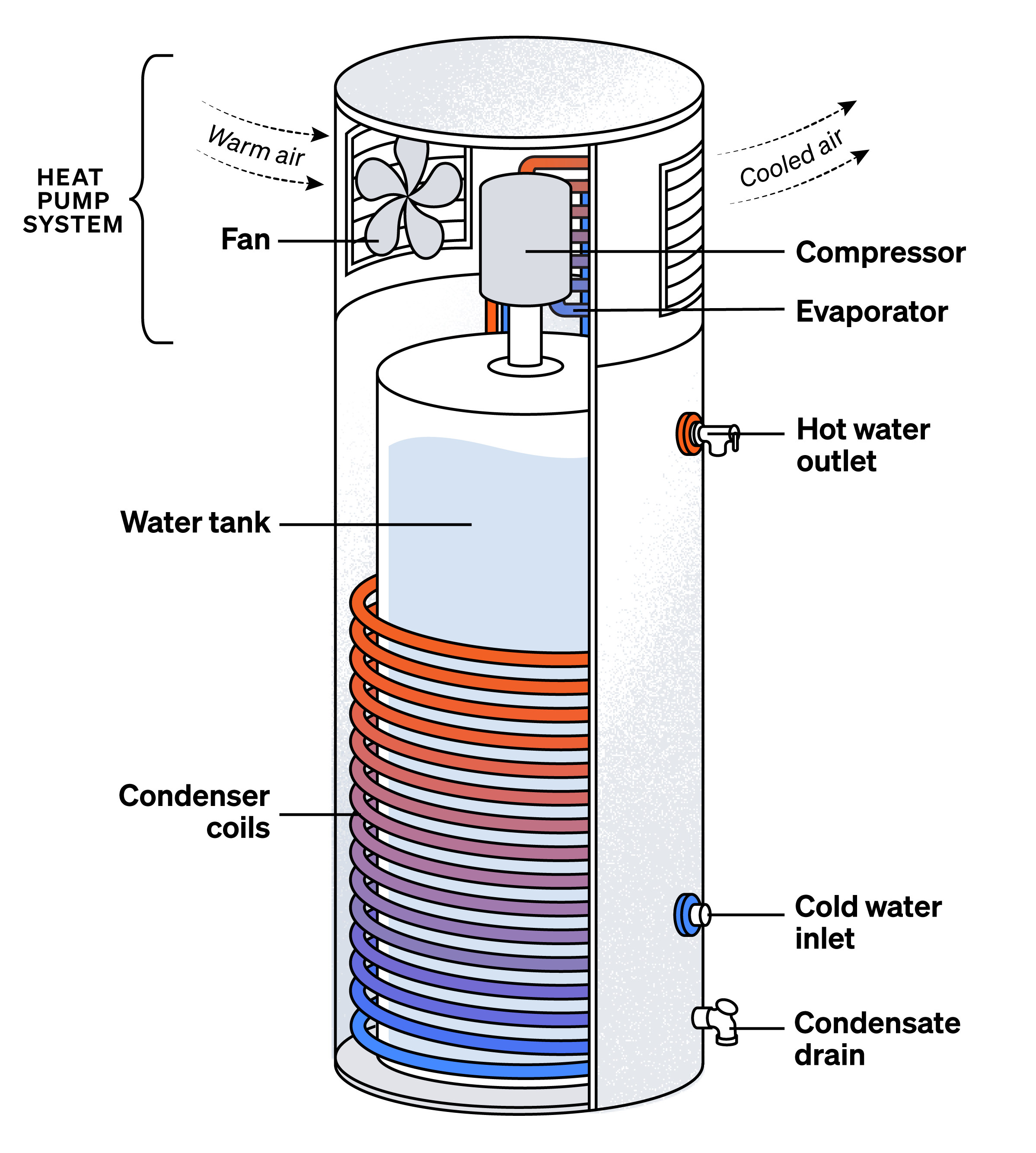Water Heaters
What Makes a Heat Pump Water Heater Different?

Heat pump water heaters pull heat from the surrounding air to heat water. In other words, they move energy instead of generating it (like a refrigerator working in reverse), which makes them very energy-efficient.
- A fan mounted on the top of the unit pushes room air across a radiator-like grid of condenser coils filled with liquid refrigerant in a closed system of tubing.
- A pump circulates the tubes filled with hot compressed gas down and around the cool water in the heater’s tank.
- The heat from the hot compressed gas moves toward the cool water, raising its temperature and cooling the gas back to a liquid where it is then pumped back to the radiator, and the process begins again.
Why Use a Heat Pump Water Heater
Heat pump water heaters use less energy than natural gas water heaters and conventional electric-resistance water heaters. And you’ll never worry about having to light the pilot again! If your water heater needs repair or replacement, consider investing in an energy-efficient heat pump water heater. You could qualify for rebates and incentives. Check the Ava incentive finder to see what you qualify for.
Benefits of Heat Pumps
Many homeowners switch to electric heat pump water heaters because they are:
- Energy-efficient. Heat pump water heaters consume as much as 63% less energy than the traditional electric water heaters.
- Clean, safe, all-electric technology. Gas leaks and toxic emissions are non-existent, and there is no pilot light.
- Versatile. Multiple settings and programmable options, such as vacation mode, help you save energy even when you’re away. Some models include automated leak detection to alert you when a leak has occurred and will even shut off the water valve to prevent damage.
- Eligible for rebates and tax incentives. Visit our incentive finder for details on current incentives.
How To Switch
- Heat pump water heaters offer many benefits, but you’ll want to consider electrical system requirements, space requirements, ventilation, noise, and permits before installing a new system.
- Visit our incentive finder to find applicable rebates and incentives.